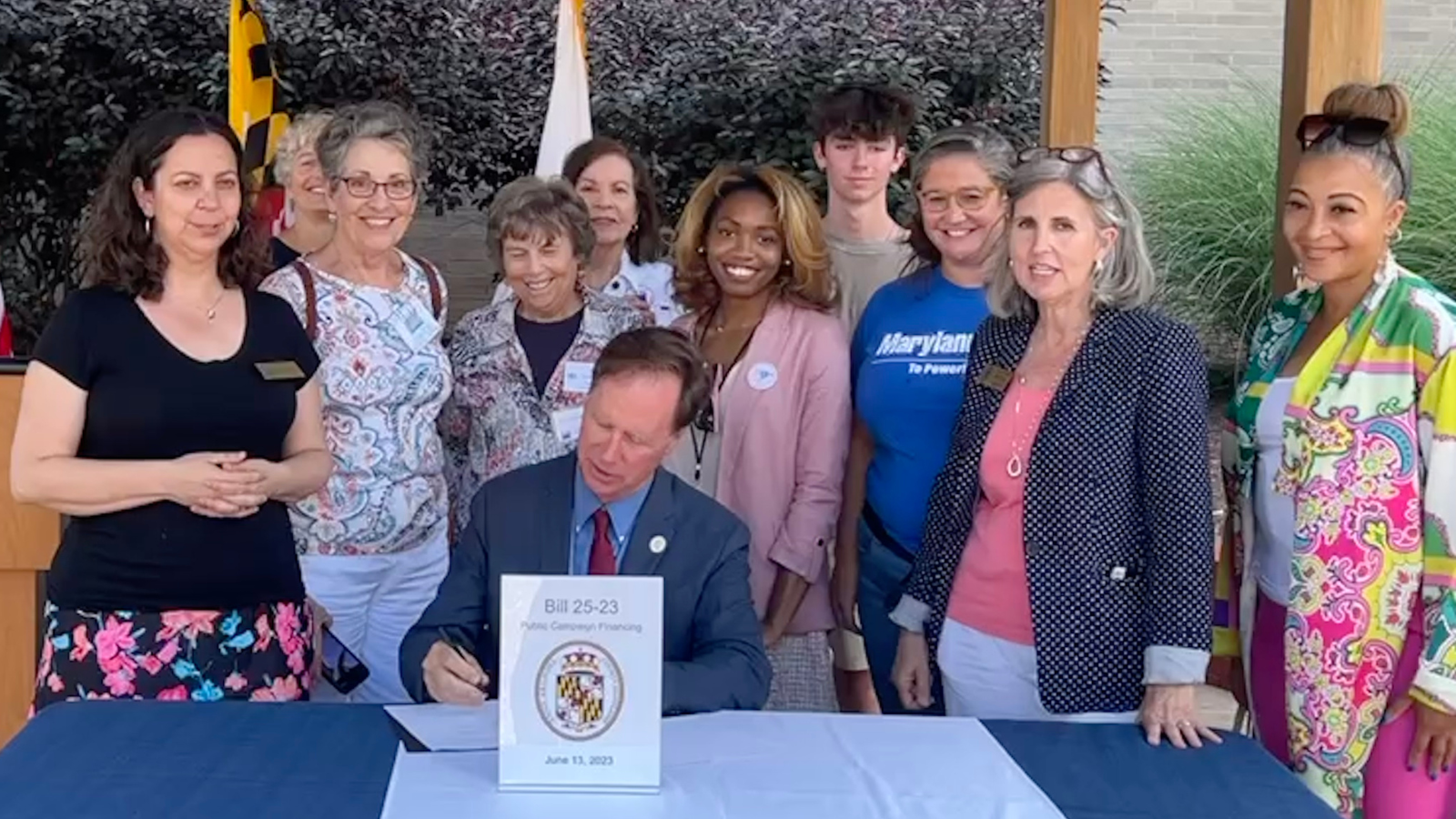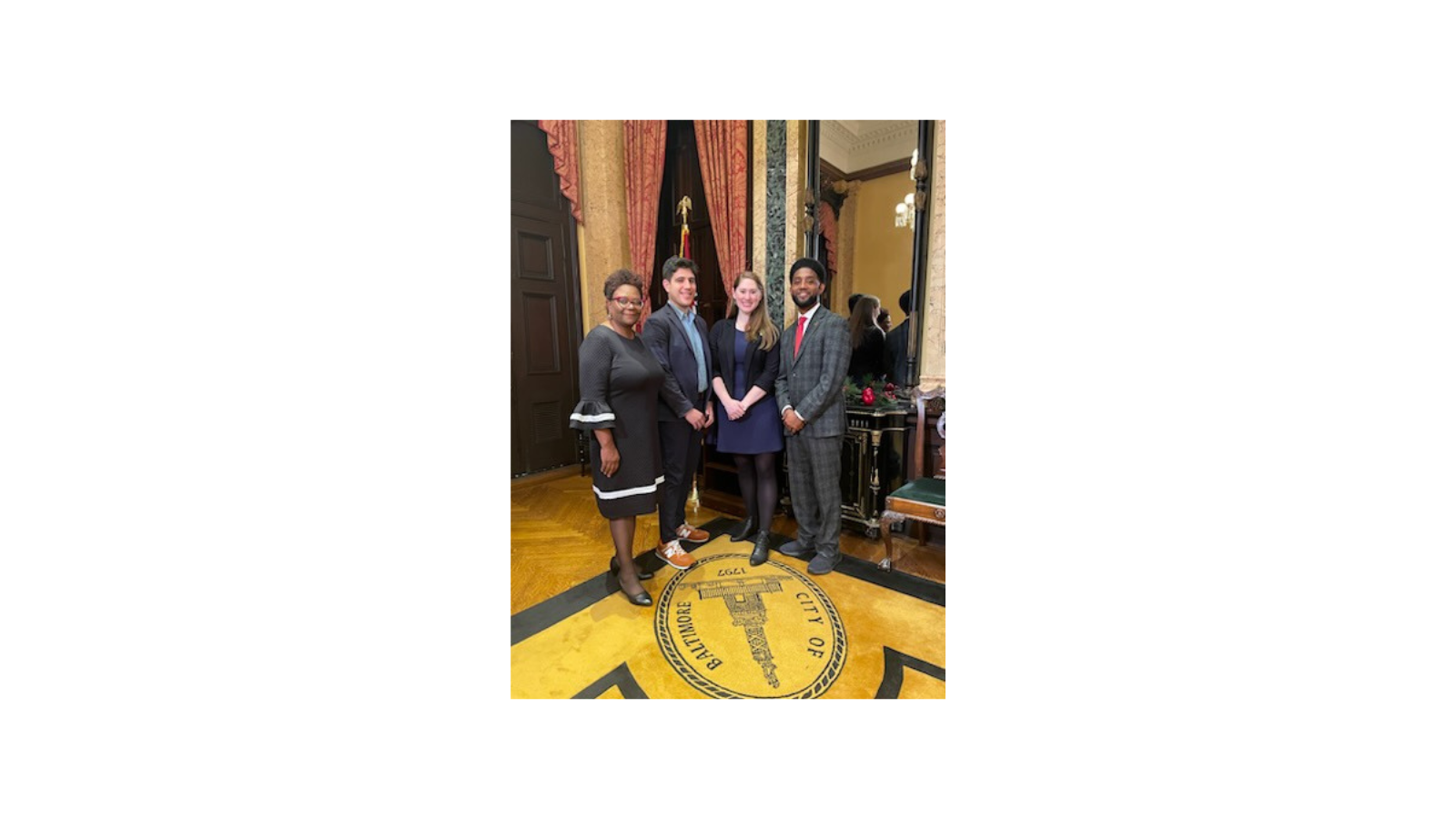
Anne Arundel County Considers Small Donor Public Financing
Anne Arundel County will hold a hearing on a proposed small donor public financing program on Monday, May 15th.

Anne Arundel County Executive Steuart Pittman is backing a bill to establish small donor pubic financing for County Council and County Executive races. The legislation is modeled after similar programs up and running in Montgomery County, Howard County, and Baltimore City. Baltimore County and Prince George’s County have also established programs. These types of programs are popular, effective, and gaining momentum.
Why we support small donor public financing.
We believe that in Maryland, the amount of money your family makes – your race, your gender – should not determine the volume of your voice in our elections. The meteoric rise of election spending in the last decade has forced Maryland elected officials and candidates to be increasingly dependent on these donors, giving them less time to hear from and serve their constituents. It has also exacerbated the already shrinking faith that citizens have in their elected officials and government.
A Fair Elections program will be better for candidates and elected officials, better for the public, and better for Anne Arundel County.
Small donor public financing is a voluntary program which would enable candidates for County Council and County Executive to run for office with small donations from their constituents while remaining competitive with those who accept large and corporate contributions. This serves the dual purpose of reducing corporate and large donor campaign spending and re-engaging the community in the electoral process. These Fair Elections programs can expand opportunities to run for office, so candidates of all backgrounds can run based on the strength of their ideas not access to money.
People across the political spectrum are unsatisfied with our nation’s campaign finance laws, and small donor pubic financing has been supported and used in Maryland by Democrats and Republicans, making it a commonsense tool to strengthen our democracy from the ground up.
Fair Elections Programs Work
Maryland PIRG Foundation released a report which found that Montgomery County’s Fair Elections program showed strong results in its first use. The report looks at data from 57 candidates for county office, 35 of whom participated in the program and 24 qualified to receive matching funds.
Key findings:
- Candidates who qualified received nearly twice as many donations from Montgomery County residents than those not participating in the program (850 vs 434).
- Candidates participating in the program received an average contribution of $86 compared to $1,145 for non participating candidates.
- Candidates running for county council seats were able to use the small donor system to run competitive races. The average contribution, including matching funds, for candidates participating in the program was similar to the average contribution for candidates accepting large contributions. ($306 vs $292)
In order to participate in the small donor program, candidates have to file a notice of intent to make use of the fund, establish a new campaign account, and meet a few conditions:
- They must accept only donations from individuals, of $250 or less.
- They must refuse donations from large donors, PACs, corporations, other candidates and political parties.
- They must meet minimum thresholds for the number of local donors and amount of money raised in order to demonstrate that their pursuit of public office is viable.
- If a candidate agrees to and meets these conditions, they become eligible for limited matching funds for small donations made by Anne Arundel County residents.
What are the next steps in Anne Arundel County?
The Anne Arundel County Council will hold a public hearing on the bill on Monday, May 15th at 7pm. To submit testimony, or sign up to testify in person you can visit the County Council’s website.
Topics
Authors
Emily Scarr
State Director, Maryland PIRG; Director, Stop Toxic PFAS Campaign, PIRG
Emily directs strategy, organizational development, research, communications and legislative advocacy for Maryland PIRG. Emily has helped win small donor public financing in Baltimore City, Baltimore County, Howard County, Montgomery County, and Prince George's County. She has played a key role in establishing new state laws to to protect public health by restricting the use of antibiotics on Maryland farms, require testing for lead in school drinking water and restrict the use of toxic flame retardant and PFAS chemicals. Emily also serves on the Executive Committees of the Maryland Fair Elections Coalition and the Maryland Campaign to Keep Antibiotics Working. Emily lives in Baltimore City with her husband, kids, and dog.
Find Out More

Small donor public financing victory in Anne Arundel County

Mayor Scott swears in Fair Election Fund Commissioners

How to Vote in the 2022 Maryland Primary Elections
